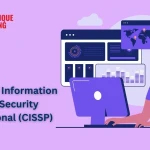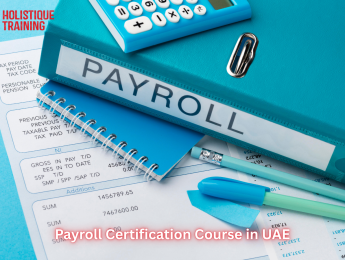Introduction
Education is an investment that shapes not only your career but also your personal growth and long-term prospects. Whether you're a fresh graduate, a mid-career professional, or someone seeking a new direction, choosing the right educational path is critical. Degrees, certifications, and short courses each serve distinct purposes, offering unique advantages and challenges.
This blog explores the differences between degrees, certifications, and short courses, their benefits and drawbacks, and helps you determine which path aligns best with your goals. By understanding these options, you can make informed decisions that maximize your time, resources, and potential.
What Is a Degree?
A degree is an academic qualification awarded by a college or university upon completing a comprehensive program of study. Degrees are typically categorized as undergraduate (e.g., bachelor's) or postgraduate (e.g., master's and doctoral).
Degree programs span a broad spectrum of disciplines, from liberal arts to sciences, business, technology, and more. They provide a deep dive into theoretical concepts, critical thinking, and a wide range of skills applicable to various careers.
Benefits of a Degree
A degree offers numerous advantages that extend far beyond the academic realm. It serves as a powerful tool for personal growth, career development, and intellectual enrichment. Here’s an in-depth look at the benefits a degree provides:
1. Comprehensive Knowledge and Skill Development
Degree programs are designed to provide students with in-depth theoretical knowledge and practical skills across a broad range of subjects. For example, a business degree covers topics like economics, marketing, finance, and management, ensuring that graduates have a well-rounded understanding of the field. This holistic approach equips individuals with the critical thinking, problem-solving, and analytical skills necessary to excel in complex professional environments.
2. Credibility and Prestige
Earning a degree demonstrates a significant level of commitment and achievement. Employers often view degree holders as reliable, disciplined, and capable of handling responsibilities. Additionally, degrees from prestigious institutions can further enhance credibility, opening doors to competitive positions and industries.
3. Career Advancement Opportunities
Many industries and roles have degree requirements as a baseline qualification. For example, careers in medicine, engineering, law, or academia often mandate specific degrees to practice or advance in the field. Even in fields without strict requirements, having a degree can make a candidate more competitive for promotions and leadership roles.
4. Higher Earning Potential
Statistics consistently show that degree holders earn more than their counterparts without a degree. According to research by the U.S. Bureau of Labor Statistics, individuals with a bachelor’s degree earn nearly 40% more annually compared to those with only a high school diploma. Over a lifetime, this wage gap can amount to hundreds of thousands of dollars.
5. Networking Opportunities
University environments are rich with networking opportunities. Students interact with peers, professors, and industry professionals, creating valuable connections that can help with internships, mentorship, and job placements. Alumni networks also provide a lifelong resource for career growth and collaboration.
6. Access to Specialised Resources
Degree programs often provide access to specialized facilities and resources, such as laboratories, libraries, research databases, and technology. These resources enable students to deepen their expertise and gain hands-on experience in their chosen field.
7. Personal Development
Pursuing a degree fosters personal growth, instilling discipline, resilience, and time management skills. Students learn to overcome challenges, meet deadlines, and manage multiple responsibilities. These traits are invaluable in both professional and personal contexts.
8. Global Opportunities
Many degree programs, especially those at renowned institutions, are recognized worldwide. This recognition allows graduates to explore international career opportunities, pursue further education abroad, or collaborate on global projects.
9. Pathway to Advanced Education
For those aiming to pursue higher education, such as master’s or doctoral programs, an undergraduate degree serves as a prerequisite. Advanced degrees often lead to niche expertise, higher salaries, and specialized career paths.
10. Versatility in Career Choices
Degrees often provide transferable skills that are applicable to various roles and industries. For instance, a degree in communication may lead to careers in public relations, media, corporate communications, or marketing. This versatility allows graduates to pivot between roles or industries as their interests and career goals evolve.
By offering these benefits, a degree remains a cornerstone of traditional education, providing individuals with both tangible and intangible advantages that shape their careers and personal lives.
Drawbacks of Degrees
While degrees offer many benefits, they also come with challenges and limitations that prospective students should carefully consider. These drawbacks can influence whether pursuing a degree is the right choice for every individual. Below, we delve into the key disadvantages of earning a degree:
1. Time-Intensive Commitment
Degrees typically require several years to complete—three to four years for an undergraduate degree and an additional one to three years for postgraduate studies. For individuals eager to enter the workforce quickly or shift careers, this long timeline can feel restrictive.
Moreover, the academic calendar often demands a rigid schedule, which may conflict with personal or professional obligations, making it less viable for working professionals or those with family responsibilities.
2. High Financial Cost
Higher education often comes with a significant financial burden. Tuition fees, books, living expenses, and other associated costs can add up to tens or even hundreds of thousands of dollars, depending on the institution and country.
For many, student loans become a necessity, leading to long-term debt that can take years, or even decades, to repay. This financial strain can deter individuals from pursuing degrees or limit their ability to invest in other life goals, such as buying a home or starting a business.
3. General Focus Over Job-Specific Skills
While degrees provide comprehensive theoretical knowledge, they may not always equip students with the specific skills demanded by employers. For instance, a computer science graduate may have a strong understanding of algorithms and programming principles but lack hands-on experience with the latest tools or industry practices.
As a result, many graduates find themselves needing additional training, certifications, or on-the-job learning to become fully competent in their roles.
4. Uncertain Return on Investment (ROI)
Not all degrees lead to lucrative careers. Graduates from fields with lower demand or limited earning potential, such as fine arts or humanities, may struggle to find high-paying jobs. In some cases, the financial and time investment in a degree does not yield a proportionate return in salary or career opportunities, leading to disillusionment or financial hardship.
5. Limited Flexibility
Degree programs often have rigid curricula, with little room for customization. Students must follow a predetermined course structure, which might not align with their unique interests or career goals.
Additionally, traditional degree programs generally require full-time attendance, making it difficult for students who need flexibility due to work, caregiving, or other commitments.
6. Competition in Saturated Job Markets
In some industries, the number of degree holders has increased significantly, leading to an oversupply of candidates for certain roles. For instance, a bachelor’s degree in business administration or marketing may no longer stand out in a crowded applicant pool, as it has become a common qualification.
This saturation can diminish the value of a degree and make it harder for graduates to secure positions without supplementary qualifications or unique experiences.
7. Slow Adaptation to Industry Changes
Academic institutions often face challenges in keeping curricula updated with rapidly changing industry trends. For instance, fields like technology and digital marketing evolve at a much faster pace than most university programs can adapt to, leaving graduates with outdated knowledge or skills.
This lag can put degree holders at a disadvantage compared to professionals who acquire real-time training through certifications or hands-on work.
8. Pressure and Stress
The academic rigor of degree programs can be overwhelming, leading to high levels of stress and burnout among students. Balancing coursework, exams, internships, and personal responsibilities can take a toll on mental health.
For those who struggle academically or face external pressures, such as financial concerns, the degree journey can become a source of significant anxiety.
9. Lack of Immediate Applicability
Unlike certifications or short courses, which often focus on practical, job-ready skills, degrees emphasize foundational knowledge and theory. While this is beneficial in the long run, it can delay graduates from immediately contributing in specific job roles, requiring additional time for on-the-job learning.
10. Geographical Limitations
Although online degrees are becoming more common, many traditional degree programs require physical attendance at specific institutions. This can limit access for students who cannot relocate or afford to live near the university.
While degrees remain a cornerstone of higher education, these drawbacks highlight the importance of assessing personal circumstances, career goals, and financial resources before committing to a degree program. For some, alternative educational paths like certifications or short courses may offer a more practical and efficient route to success.
What Is a Certificate?
A certificate is a credential awarded after completing a short, focused program designed to teach specific skills or knowledge in a particular area. Certificates are available in diverse fields, such as project management, digital marketing, IT, healthcare, and language proficiency.
Certificates are often offered by universities, professional organisations, and online platforms like Holistique Training . They are designed to validate skills and enhance professional development.

Benefits of Certifications
Certifications offer a unique set of benefits that make them an attractive option for individuals looking to enhance their skills, pivot careers, or specialize in a particular field. Unlike traditional degrees, certifications are typically more focused, shorter in duration, and highly targeted toward specific industries or job roles. Let’s explore the distinct advantages of obtaining certifications:
1. Faster Time to Qualification
One of the most significant advantages of certifications is the speed with which they can be earned. Unlike degrees, which can take several years to complete, certifications can often be achieved in a matter of weeks or months. This accelerated timeline allows individuals to quickly gain the skills needed to advance in their careers or switch industries. For those eager to enter the workforce or acquire new skills without a long-term commitment, certifications provide a much faster route.
2. Focused, Job-Specific Skills
Certifications are often designed to address specific job roles or industries, providing targeted education in the areas most relevant to a person’s career goals. For example, a project management certification will focus on the skills needed to lead projects effectively, such as budgeting, scheduling, and risk management, while a certification in digital marketing will teach the latest strategies for SEO, SEM, and social media advertising.
This specialized focus ensures that individuals gain practical, job-ready knowledge and are able to apply what they’ve learned directly to their roles, making certifications an efficient way to bridge skill gaps in the workplace.
3. Lower Cost Compared to Degrees
Certifications are often more affordable than degree programs. The cost of obtaining a certification is generally much lower, making it an accessible option for individuals looking to upskill without taking on substantial student debt. For example, while a degree in business or IT might cost tens of thousands of dollars, many certifications are available for a fraction of that price, with some even being offered for under $1,000. This lower financial barrier makes certifications an attractive option for people who want to enhance their skills without incurring significant costs.
4. Flexibility in Learning
Many certifications offer flexible learning formats, including online courses, self-paced learning, and part-time options. This flexibility allows individuals to earn their certifications while balancing other responsibilities, such as work or family commitments. Online platforms such as Coursera, Udemy, and LinkedIn Learning offer courses from reputable institutions, often with the option to learn at your own pace, meaning you can study when and where it’s most convenient for you.
This adaptability makes certifications ideal for professionals who need to continue working while pursuing education, as well as for those who prefer a more independent learning style.
5. Enhanced Career Opportunities
Certifications can significantly increase your employability, especially in fields where specific skills or knowledge are highly valued. For example, a certification in cloud computing or cybersecurity can make you a more competitive candidate in the tech industry, where demand for these skills is rapidly increasing. In many sectors, certifications are required or highly recommended by employers, making them a crucial factor in securing a job or advancing within a company.
Furthermore, certifications often give professionals a competitive edge in crowded job markets, where many candidates may have similar educational backgrounds but lack specialized, industry-specific credentials.
6. Demonstrates Expertise and Commitment to Professional Growth
Certifications are often viewed by employers as a demonstration of expertise in a specific area. Earning a certification shows that you have taken the initiative to learn and improve your skills in a given field. It signals to employers that you are committed to staying current in your profession and are serious about professional development.
For example, professionals who pursue certifications in areas like data analysis, agile project management, or HR can showcase their ability to adapt to industry changes and keep up with emerging trends. This dedication to ongoing education is highly valued in many industries and can enhance your professional reputation.
7. Increased Earning Potential
Many certifications can lead to higher salaries. According to various studies, certified professionals tend to earn more than their non-certified counterparts. This can be especially true in specialized fields like IT, finance, and healthcare, where certifications can directly impact your ability to perform certain tasks or qualify for specific roles.
For example, a Certified Information Systems Security Professional (CISSP) in the cybersecurity field can command significantly higher pay than a person without the certification. By demonstrating specialized knowledge through a certification, professionals can position themselves for better job opportunities and salary increases.
8. Global Recognition and Mobility
Certifications from reputable organizations are often recognized internationally. This global recognition makes certifications particularly valuable for individuals seeking to work abroad or with international companies.
For example, certifications like Project Management Professional (PMP), Cisco Certified Network Associate (CCNA) , or Google Analytics are recognized by employers worldwide, which can be especially advantageous for professionals interested in working in different countries or industries. This global mobility can open doors to new opportunities and experiences that might not be available with a traditional degree alone.
9. Short-Term Focused Learning
Unlike degrees, which can be broad and often include general education requirements unrelated to your primary career goals, certifications allow you to focus directly on the skills and knowledge needed for your job or industry. This means less time spent on subjects that may not be relevant to your career path and more time spent mastering the specialized skills that matter most in your field.
This focused, short-term learning makes certifications a more efficient use of time for individuals who already have a foundational understanding of a subject and simply want to deepen their expertise or gain proficiency in a new area.
10. Professional Networking
Many certification programs come with access to professional networks, including alumni groups, conferences, and industry-specific events. These networks can connect individuals with like-minded professionals, potential employers, and mentors, creating opportunities for career advancement, partnerships, and collaborations.
These networking opportunities can be particularly valuable in niche industries where personal connections and industry knowledge play a significant role in career success.
Certifications offer a practical, efficient, and cost-effective way to gain specialized skills, enhance career prospects, and demonstrate expertise. For individuals looking to advance in their current roles or switch to a new career path, certifications provide an accessible and targeted option that is tailored to the evolving demands of the job market.
Drawbacks of Certifications
While certifications provide a fast and efficient way to acquire specialized skills, they are not without their limitations. As with any educational credential, there are certain drawbacks that individuals should consider before pursuing a certification. These disadvantages can impact how valuable a certification is in the long term, depending on career goals and industry requirements. Below are the key disadvantages associated with certifications:
1. Limited Scope of Knowledge
Certifications are typically designed to teach specific skills or knowledge that are directly relevant to a particular job role or industry. While this targeted approach is a major advantage, it can also be a limitation. Unlike a degree program, which often offers a broad education and in-depth understanding of a field, certifications focus on practical, job-related skills. As a result, they may not provide a comprehensive understanding of the broader industry context or theoretical foundations that a degree might offer.
For example, a certification in digital marketing may teach the latest techniques for social media advertising or SEO, but it may not provide a deep understanding of marketing theory, consumer behavior, or strategic planning, all of which can be vital in higher-level roles. For those seeking a well-rounded education that prepares them for multiple aspects of a career, certifications may fall short.
2. Lack of Recognition or Credibility in Certain Fields
Not all certifications carry the same weight or recognition. While certifications from well-known organizations or industry leaders like Microsoft, Google, or Cisco are widely respected, others may be less recognized by employers. In some industries, certifications may not hold as much value as they do in fields like IT, healthcare, or project management.
For instance, some smaller certification providers may not have the same credibility or industry presence as established institutions, which can limit their effectiveness in enhancing a resume. Employers may be skeptical about certifications from unknown or less reputable sources, particularly in competitive fields where a degree or hands-on experience may be preferred.
3. No Guarantee of Employment
While certifications can enhance job prospects, they do not guarantee employment. Having a certification can certainly make you more competitive in the job market, but it does not guarantee a job offer or career success. Many employers still place significant value on work experience, a strong professional network, and other factors that certifications alone cannot address.
For example, someone with a certification in project management may still face challenges finding a job if they lack real-world experience in managing projects or if the job market is oversaturated with other qualified candidates. In many cases, additional experience, networking, or even a degree may be necessary to secure a job, especially in highly competitive fields.
4. Ongoing Costs for Recertification and Maintenance
Certifications often require maintenance through continuing education or recertification exams to remain valid. While a certification may open doors initially, maintaining it can be costly and time-consuming. Many certifications, particularly in fields like IT, finance, and healthcare, require professionals to complete additional courses, exams, or workshops periodically to stay up-to-date with evolving technologies, standards, or regulations.
For example, IT certifications like CompTIA A+ or Cisco’s CCNA need to be renewed every few years, requiring individuals to invest in further education, pay for recertification fees, and dedicate time to staying current in the field. This ongoing commitment can be burdensome, especially for professionals who already have a busy schedule or are working in industries with rapidly changing requirements.
5. Over-Specialisation in a Niche Area
Certifications are typically narrow in scope, meaning they can lead to over-specialization in a particular area. While this can be beneficial for individuals looking to focus on a specific skill or industry, it can also limit career flexibility in the long term.
For example, someone who obtains a certification in a specific software tool may find it difficult to transition into a broader role in a related field because their skill set is too niche. If the demand for that particular tool diminishes or the industry shifts, the individual may struggle to adapt without additional certifications or skills. In contrast, a degree program tends to offer more general knowledge and flexibility, making it easier to pivot across different roles within a field.
6. Possible Lack of Depth in Knowledge
Certifications often emphasize practical, application-based learning rather than theoretical depth. This approach is ideal for acquiring immediately applicable skills, but it can leave gaps in a person’s understanding of the underlying concepts or principles. For example, a certification in network security will teach the techniques and tools used in securing computer networks, but it may not offer a deep dive into the theoretical aspects of cybersecurity, such as the history of encryption methods or the mathematics behind cryptographic protocols.
For professionals aiming to advance to higher positions, such as managerial or executive roles, the lack of deep theoretical knowledge can be a hindrance. These roles often require a broader understanding of an industry’s foundational principles and strategic insights, which certifications may not provide.
7. Inconsistent Industry Demand
Unlike degrees, which are generally more universally required across various industries, certifications can be subject to fluctuations in demand based on industry trends, technology advancements, or economic shifts. For instance, certifications in technologies that become outdated or fall out of favor can quickly lose their relevance. This means that a certification you earn today may not carry the same value in the future if the demand for that specific skill diminishes or is replaced by new technologies.
For example, a certification in a now-obsolete programming language may have been highly valuable a few years ago but may not be as beneficial today. Therefore, professionals must stay informed about emerging trends and adjust their certifications accordingly to maintain their value.
8. Potential Overemphasis on Credentials Over Experience
In some cases, individuals may focus too heavily on collecting certifications, hoping that additional credentials will automatically make them more marketable. While certifications certainly enhance a resume, they should complement, not replace, practical experience. Employers generally place a high value on hands-on experience and the ability to perform real-world tasks, and certifications alone cannot substitute for this.
For instance, someone with multiple certifications but limited work experience may find it challenging to land a job, as employers may question whether the individual can actually apply their knowledge effectively in a practical setting. Balancing certifications with relevant work experience is essential for leveraging the full value of both.
9. Limited Recognition by Certain Employers
Although certifications are highly valued in some fields, not all employers prioritize them. Certain industries, such as academia, law, or medicine, may prefer candidates with advanced degrees and may not place much weight on certifications. In these fields, professional credentials like a bachelor’s, master’s, or doctoral degree are often considered more important, and certifications may not be as highly regarded.
Moreover, some employers may be skeptical about the legitimacy or value of certain certifications, particularly if they come from lesser-known providers or are perceived as "easy" qualifications. In these cases, certifications may not add significant value to a candidate’s profile, making a degree or direct experience a more attractive option.
While certifications offer numerous advantages in terms of cost, time, and specific skill development, they come with their own set of challenges. They are not always suitable for those seeking broad, theoretical knowledge or those looking for long-term career flexibility. Additionally, certifications may not guarantee employment, nor do they always carry the same weight as a degree in all fields. Therefore, it's essential to carefully consider the nature of the certification, the industry in which you plan to work, and your long-term career goals before making the decision to pursue one.
What Is a Short Course?
A short course is a compact learning program that offers foundational or intermediate knowledge on a specific topic. Short courses are often delivered online or in-person and are designed for quick learning or skill enhancement.
These courses can cover topics like coding, graphic design, financial literacy, or communication skills and are popular among individuals seeking a fast and flexible way to upskill.
Benefits of a Short Course
Short courses have become an increasingly popular option for professionals and learners seeking to acquire specific skills or knowledge in a condensed format. They offer flexibility, affordability, and the opportunity to stay relevant in rapidly changing industries. Whether taken online or in-person, short courses are designed to provide practical, targeted learning in a brief time frame, often ranging from a few hours to a few months. Below are the primary benefits of opting for short courses:
1. Quick and Focused Learning
One of the most significant advantages of short courses is their ability to deliver concise, focused content in a short period. For individuals who are looking to enhance their skills quickly or learn something new without committing to a lengthy educational program, short courses offer an efficient solution. These programs focus specifically on the skills or knowledge required for a particular job, industry, or task, which means learners can gain expertise in a specific area without unnecessary detours or broadening of scope.
For example, a short course in digital marketing may cover essential topics like SEO, social media marketing, and email campaigns, without the need to delve into broader marketing theories or history. This makes short courses ideal for those with limited time but the desire to boost their skill set immediately.
2. Flexibility in Learning
Short courses are often designed to be flexible, catering to professionals with busy schedules. Many of them are available online or through hybrid formats, enabling learners to balance their personal or work commitments while gaining new knowledge. This flexibility is especially valuable for individuals who need to fit education into an already packed routine or those looking for self-paced learning options.
Online short courses, for example, allow learners to study from anywhere, at any time, and even at their own pace. This means that you can learn during your commute, on weekends, or during evenings, without the need to attend scheduled classes. Some courses are also designed in modular formats, where learners can complete sections at their own pace, making it easier to fit learning into their personal and professional lives.
3. Cost-Effective
Short courses are generally more affordable than full-degree programs or even certifications. The reduced length of the course means there are fewer hours of instruction, fewer resources required, and ultimately lower fees for learners. This makes short courses an attractive option for those on a budget or for professionals who want to enhance their skills without taking on significant financial debt.
Moreover, many short courses are available through platforms offering flexible payment plans, scholarships, or even free options, which further reduces the financial burden on learners. When compared to the costs associated with pursuing a degree or certification program, short courses present a more accessible path for those looking to gain relevant skills without breaking the bank.
4. Stay Current with Industry Trends
In industries where technology, tools, or regulations change frequently, staying up-to-date is crucial. Short courses allow individuals to quickly gain knowledge about new trends, techniques, or technologies, ensuring they remain competitive in their field. This is especially important in fast-evolving sectors like IT, digital marketing, healthcare, and finance, where knowledge becomes outdated rapidly.
For example, a short course on AI and machine learning can help professionals in tech stay current with the latest innovations and trends, ensuring they don't fall behind in an industry where new developments are constantly emerging. By participating in a short course, individuals can avoid being left behind by the latest advances in their profession, giving them an edge in their career.
5. Practical, Hands-On Learning
Unlike theoretical degree programs, short courses often focus on practical, hands-on skills that can be applied directly to the workplace. This emphasis on practical learning makes short courses particularly appealing for individuals who want to improve their job performance or shift careers without spending years in school.
For example, a short course in coding or project management is likely to focus on building practical skills through real-life projects, case studies, or simulations. Learners gain direct experience with tools, techniques, and methods that they can immediately use in their professional environment. This hands-on learning approach ensures that students can apply what they have learned quickly and effectively.
6. Networking Opportunities
Even though short courses are typically shorter in duration, they still provide valuable networking opportunities. Many courses bring together professionals from various industries, offering learners the chance to connect with like-minded individuals, instructors, and guest speakers.
These networking opportunities can be especially valuable for career changers or those looking to expand their professional connections. Whether it's through group discussions, online forums, or industry-specific events, short courses often facilitate networking with peers and mentors, which can open doors to new career opportunities, collaborations, or job leads.
7. Personal Development and Confidence Building
Participating in a short course can also be a powerful tool for personal development. Completing a course and mastering a new skill can boost self-confidence, especially for individuals looking to improve their abilities in specific areas. For instance, taking a course in leadership development or communication can help professionals become more effective in their personal and professional lives.
Moreover, short courses encourage lifelong learning, allowing individuals to continue expanding their knowledge and skills throughout their careers. This continuous growth fosters a mindset of curiosity and self-improvement, which can positively impact overall job satisfaction and long-term career success.
8. Specialised Knowledge and Expertise
For those looking to specialize in a particular field or niche area, short courses provide an excellent opportunity to gain expertise in that domain. Whether you are interested in a specific software tool, a particular methodology, or a niche industry, short courses can help you acquire the knowledge needed to position yourself as an expert in that area.
For example, a professional who works in healthcare administration may choose a short course in healthcare data analytics to gain specialized knowledge and improve their qualifications. By specializing in a high-demand area, learners can increase their value to employers and distinguish themselves from other professionals in the same field.
9. Easier Career Transitions
Short courses are also a great option for individuals considering a career change. Instead of committing to a full degree program, individuals can use short courses to explore new fields, acquire essential skills, and assess whether a particular career path is right for them.
For example, someone with a background in marketing may take a short course in graphic design to determine whether they would enjoy working in a creative role. This allows individuals to dip their toes into a new area without making a long-term commitment, offering a less risky way to pivot careers. Short courses also provide a low-cost and low-time-investment option for professionals looking to test out a new industry or role before fully transitioning.
10. Career Advancement
Short courses can serve as a stepping stone for career advancement. In many cases, professionals can use the knowledge gained from a short course to qualify for promotions or new job opportunities. This is especially true if the course is related to an area where employers are looking to develop talent.
For instance, an employee who completes a short course in data analysis may be able to apply for roles that require those skills, or they may be considered for leadership roles in projects related to data management. Short courses enable professionals to demonstrate their commitment to learning and professional growth, which can be attractive qualities to employers looking for motivated, skillful individuals to take on more responsibility.
Short courses are an excellent option for those who need to learn quickly, stay current with industry trends, or improve specific skills without committing to a long-term educational program. With their affordability, flexibility, and targeted focus on practical learning, short courses offer a valuable alternative for those looking to boost their career or switch industries without investing extensive time or resources.
Drawbacks of Short Courses
While short courses offer numerous benefits, they are not without their limitations. Depending on your goals, career aspirations, and the specific course you choose, these drawbacks may impact your decision to pursue short-term education. Understanding these potential downsides can help you weigh whether a short course is the right path for you, or if you might be better off exploring other educational options like degrees or certifications. Here are the primary drawbacks of short courses:
1. Limited Depth of Knowledge
One of the most significant drawbacks of short courses is that they typically cover a narrow range of topics in a short amount of time. While this allows learners to gain practical, targeted skills quickly, it also means that the content is usually less comprehensive than what you would receive in a degree program or even some certification courses.
For example, a short course in project management might teach you the basics of the discipline, but it won’t delve into complex topics like strategic project alignment, risk management, or advanced leadership techniques in the same way that a full degree in project management would. As a result, short courses may not provide the deep, broad understanding of a subject that you need to become an expert or tackle advanced roles in that field.
This can be especially limiting for those who want to build a strong foundational understanding of a subject or pursue higher-level positions that require a broad knowledge base. While short courses can enhance specific skills, they often lack the depth that some careers demand.
2. Less Recognition or Credibility
Compared to degrees and certifications, short courses generally do not carry the same level of recognition or prestige. While a degree from a well-known university or a certification from a reputable professional body can carry significant weight in the job market, short courses are often seen as less prestigious.
Employers may not always recognize the value of short courses, especially if they are from non-accredited institutions or unverified online platforms. While completing a short course shows initiative and a commitment to learning, it may not hold the same weight as a degree or certification in terms of career advancement or salary potential.
Additionally, short courses are often not subject to the same rigorous academic or professional standards as degrees or certifications. This means that employers may not see them as an indicator of serious, formal education or expertise. For those looking to land highly competitive roles or advance into leadership positions, this lack of recognition could be a barrier.
3. Limited Career Advancement Opportunities
While short courses can help you acquire practical skills and knowledge, they may not necessarily open doors to advanced career opportunities. Degrees and certifications often provide a more comprehensive educational experience and are designed to qualify individuals for higher-level roles within an industry. In contrast, short courses are typically aimed at specific, operational skills rather than broad career development.
For example, while a short course in software development may help you get a job as a junior developer, it may not be sufficient to propel you into a senior or management role in the field. Similarly, a short course in marketing may allow you to learn a specific tactic or tool, but it may not qualify you for leadership roles in marketing strategy or business development. If career growth and leadership opportunities are a significant goal for you, short courses alone may not provide the qualifications needed to advance.
Additionally, while short courses can serve as a stepping stone to more specialized skills, they rarely offer the in-depth study or networking opportunities that can help facilitate career progression in the way that a degree or a well-recognized certification can.
4. Lack of Comprehensive Support and Resources
Unlike degree programs, which often provide extensive student support services, such as mentoring, career counseling, and access to alumni networks, short courses typically offer limited resources. The absence of robust student support can leave learners without guidance when they encounter difficulties in their studies, have questions about course material, or need career-related assistance after completing the course.
While some short courses may provide access to instructors or forums for interaction, these interactions are usually more limited than what you would find in a full degree program. This can be particularly challenging for those who prefer a more structured and supported learning environment or need more help with complex subjects.
Moreover, many short courses do not offer the same level of practical experience or internships that degree programs and certifications might provide, which could help learners transition smoothly into their careers or gain real-world insights. This lack of hands-on experience can be a disadvantage for those who learn best by doing or who want to apply their skills in a real-world setting as part of their education.
5. No Formal Qualification or Certification (In Some Cases)
Although some short courses offer certificates upon completion, not all of them do, and the ones that do may not be recognized by employers or professional bodies. This means that, in some cases, completing a short course may not result in a formal qualification that can be added to your resume or LinkedIn profile.
Even when a certificate is awarded, it may not carry the same weight as a formal qualification like a degree or certification from an accredited organization. As such, while you may have gained valuable knowledge and skills, the lack of formal recognition could hinder your ability to demonstrate your qualifications to potential employers or advance in your career.
This lack of formal certification can also be a concern for those in regulated industries, where certain certifications or qualifications are required by law to practice. For example, in fields like healthcare, law, or finance, specific licenses or certifications are mandatory, and short courses may not fulfill these requirements.
6. Potential for Overload or Burnout
Although short courses are typically more flexible than degree programs, they still require time and effort. Because they condense a lot of information into a short period, the pace of learning can sometimes feel overwhelming, especially if you're juggling other responsibilities, such as work or family commitments.
While short courses are designed to be more focused and intensive, this concentrated learning can result in burnout for some individuals. Learning at a fast pace without enough time to digest the material thoroughly can lead to stress, fatigue, and a feeling of being overwhelmed. For some learners, this intense format might not be sustainable or enjoyable, and they might prefer a slower, more balanced educational approach.
Additionally, some short courses are designed to be self-paced, which can sometimes lead to procrastination or the tendency to delay completing coursework. Without the structure or deadlines of a traditional academic program, learners may struggle to stay on track and complete the course.
7. Narrow Scope and Limited Career Flexibility
Short courses are often designed to teach specific, job-related skills, but they typically don’t provide the broader knowledge or flexibility that a degree or certification might offer. If your goal is to gain expertise in a wide range of topics or pursue multiple career paths, short courses may not provide the necessary foundation.
For example, if you complete a short course in website design, you might acquire the practical skills necessary to build websites, but you may miss out on learning about broader subjects such as marketing, business strategy, or project management, which could help you grow in your career or transition into different roles.
As such, short courses are best suited for individuals who have a clear, specific goal in mind and are looking to acquire skills in one particular area. If you are looking for more career flexibility or the ability to pivot between different fields, a degree or certification may offer a broader scope of education and career options.
In summary, short courses are a great option for those looking to gain specific skills quickly, but they do come with certain limitations. These include a lack of depth, limited career advancement potential, and the potential for minimal formal recognition. Understanding these drawbacks, along with the benefits, can help you determine whether a short course is the right fit for your learning needs and career goals.
Key Differences Between Degrees, Certificates, and Short Courses
Choosing between a degree, certificate, or short course is a pivotal decision that depends largely on your career goals, time commitments, and desired level of expertise. Each of these educational paths offers unique advantages, and understanding their key differences can help you make a more informed choice. Below are the main distinctions between degrees, certificates, and short courses across several important dimensions:
1. Length and Time Commitment
- Degrees : Degree programs typically span several years, ranging from 2 to 4 years for an undergraduate degree and an additional 1 to 3 years for a master’s degree, depending on the field and program structure. Due to their length, degrees require a significant time commitment, often demanding full-time study. Some people may also need to balance work or family obligations, making the time commitment even more demanding. However, a degree offers a comprehensive education and in-depth knowledge in a subject.
- Certificates : Certificate programs are usually shorter than degrees and can vary in length. Some certifications take only a few months to complete, while others may take a year or more. Certificates often require a time commitment of anywhere from 100 to 500 hours of study, making them more flexible than degrees but more intensive than short courses. Many certificate programs can be completed part-time, allowing you to continue working or managing other commitments.
- Short Courses : Short courses are the most flexible in terms of time commitment. They generally last anywhere from a few days to several weeks, depending on the course and the amount of material being covered. Most short courses are designed for working professionals or individuals seeking specific skills without a long-term time investment. While the time commitment is minimal, the courses are typically highly focused and concentrated on a particular subject or skill.
2. Depth of Knowledge
- Degrees : Degrees are the most comprehensive form of education. They are designed to provide students with a broad understanding of a subject, as well as specialized knowledge in specific areas of the field. In addition to core subject matter, degree programs often include a mix of general education courses, electives, and research projects that contribute to a well-rounded academic experience. A degree program can take years to complete because it is designed to teach both fundamental concepts and advanced topics, preparing graduates for complex roles in their respective fields.
- Certificates : Certificates, by contrast, are more focused and specialized than degrees. While they do provide in-depth knowledge in a specific area, they do not offer the same level of breadth. For example, a certificate in digital marketing might focus specifically on the latest tools and techniques in SEO, content marketing, and analytics, without delving into broader marketing principles or theory. As such, certificates are ideal for professionals looking to deepen their expertise in a particular area without undergoing an entire degree program.
- Short Courses : Short courses typically cover a narrow range of topics within a field, often providing only a surface-level understanding of the subject. While they are highly targeted and efficient in delivering practical skills, they don’t provide the same in-depth learning experience as degrees or certificates. Short courses are usually designed to address a specific gap in knowledge or skill and are ideal for quick, practical learning rather than deep theoretical exploration.
Table: Comparing short courses, degrees, and certifications
Criteria | Short Courses | Degrees | Certifications |
Duration | Typically a few days to months. | Usually 3-4 years for full-time students. | Varies from weeks to months. |
Depth of Knowledge | Focuses on specific skills or topics. | Provides broad, in-depth subject knowledge. | Specialises in a specific area of expertise. |
Cost | Generally low-cost compared to degrees. | Can be expensive with tuition fees. | Usually affordable, depending on certification. |
Flexibility | Highly flexible, often online or part-time. | Less flexible, requires full-time commitment. | Flexible, with online and self-paced options. |
Career Impact | Suitable for skill enhancement or career pivot. | Essential for long-term career progression. | Boosts job prospects with specific skills. |
3. Cost and Financial Investment
- Degrees : Degrees tend to be the most expensive option of the three. The cost of tuition, books, and additional fees can add up significantly, especially for undergraduate or postgraduate programs at prestigious universities. For many individuals, pursuing a degree requires substantial financial investment, and in some cases, student loans. However, the return on investment can be high, as degrees often lead to higher-paying jobs and increased career opportunities in the long run.
- Certificates : Certificates are generally less expensive than degrees. While they still require financial investment, the cost is often more manageable and varies widely depending on the provider and the depth of the program. For example, a certificate from a professional organization or a university extension program may cost several hundred to a few thousand dollars. While certificates can be a more affordable option compared to degrees, they still represent an investment in career development, especially if they open doors to higher-paying job opportunities.
- Short Courses : Short courses tend to be the least expensive option. Because of their shorter duration and narrow focus, they are priced accordingly. Many online platforms, community colleges, and training centers offer short courses at relatively low costs. These courses are a cost-effective way to upskill without committing a significant amount of money. In some cases, employers may even sponsor or reimburse employees for taking short courses that align with their professional development goals.
4. Career Impact and Advancement
- Degrees : Degrees are the gold standard when it comes to formal education. They are widely recognized by employers and provide the broad qualifications needed to pursue many high-level or specialized careers. A degree is often a requirement for entry into certain fields, such as law, medicine, engineering, and academia, and can significantly impact your long-term career trajectory. Graduates with degrees are typically eligible for managerial roles, higher salaries, and professional advancement. Additionally, the prestige of a degree from a reputable institution can open doors to more competitive positions.
- Certificates : Certificates are highly valued in many industries, especially for individuals looking to specialize in a particular area. Certifications from well-known professional organizations can help boost your credibility and demonstrate a higher level of expertise to potential employers. While certificates may not provide the same broad career options as degrees, they are extremely useful for advancing in a specific field. In some industries, certifications can be just as valuable as, or even more valuable than, a degree, particularly if they are recognized by industry leaders and organizations.
- Short Courses : Short courses are typically not a key factor in determining career advancement, especially when compared to degrees or certifications. However, they can still have a positive impact, particularly for individuals looking to enhance their current role or make a career pivot. For example, taking a short course in a new software tool can help an employee become more efficient in their current role or qualify for a lateral move to a new position. While short courses may not directly lead to promotions or higher salaries, they can increase job performance and contribute to skill diversification.
5. Recognition and Credibility
- Degrees : Degrees, especially those from accredited institutions, carry significant recognition in the job market. They are often considered a foundational requirement for many positions and industries. Employers and hiring managers recognize the extensive training and academic rigor that degrees entail, making them highly credible in the eyes of recruiters. Graduating with a degree also often provides access to a network of alumni, which can be beneficial for career advancement and job placement.
- Certificates : Certificates can be highly credible, especially if they are issued by a respected institution or professional body. The value of a certificate is largely determined by the reputation of the organization offering it and its relevance to your industry. For example, certifications in IT (like Cisco, Microsoft, or AWS) are well-recognized across the tech industry and can enhance your resume significantly. However, some certificates, particularly those from lesser-known providers, may not carry the same weight and may not be as recognized by employers.
- Short Courses : Short courses are typically less recognized by employers when compared to degrees and certifications. While they can demonstrate initiative and willingness to learn, they do not always carry the same level of formal recognition. In certain fields, such as healthcare or engineering, short courses may not be sufficient to meet professional standards, and their value may be limited to certain niche areas or specific skills. As such, short courses are best suited for individuals looking to improve specific aspects of their career rather than make broad changes to their professional qualifications.
6. Flexibility
- Degrees : Degrees generally offer the least flexibility in terms of pacing and scheduling. Traditional degree programs are usually structured with fixed start dates, set class schedules, and long durations. However, many universities now offer online or hybrid degrees that allow for more flexibility, allowing students to balance work and family life. Even so, degrees typically require a significant time investment and long-term commitment.
- Certificates : Certificate programs often offer more flexibility than degrees. Many are available online or in evening/weekend formats, which makes them more suitable for working professionals or those with other commitments. Some certificate programs can be completed at your own pace, giving you more control over how quickly you progress.
- Short Courses : Short courses are by far the most flexible option. Many are offered in online formats, allowing you to learn at your own pace, and they can be completed in short bursts. Some providers offer self-paced learning, while others have scheduled start dates. Short courses are ideal for individuals with busy schedules who need to learn specific skills quickly.
Understanding these key differences can help you choose the right educational path for your career. Whether you’re aiming for a deep, comprehensive education with a degree, seeking specialized skills through a certificate, or looking to quickly upskill with a short course, each option has its place. The decision ultimately depends on your career goals, the level of commitment you can make, and the kind of skills or expertise you wish to gain.
Which One Is Right for You: Degree, Certificate, or Short Course?
The decision between pursuing a degree, certificate, or short course depends on a variety of factors that reflect your career goals, personal circumstances, and the industry you are in. Each option offers distinct advantages and can be the right choice for different reasons. To help you make an informed decision, let’s break down the considerations you should take into account to determine which educational path is the best fit for you.
1. Assess Your Career Goals
- Long-Term Career Aspirations : If your goal is to pursue a professional career in a field that requires deep, specialized knowledge, or if you plan to take on roles that require advanced expertise or leadership, a degree is often the best option. For example, careers in medicine, law, engineering, or academia typically demand formal degrees as the foundational qualification. A degree offers comprehensive training in theory, critical thinking, and problem-solving, all of which are essential for these professions. Degrees also tend to open doors to leadership or management positions down the line.
- Specialized Knowledge or Skill Development : If you already have experience in your field but want to deepen your knowledge or gain new technical expertise, a certificate might be the better choice. Certificates are ideal for individuals looking to become subject matter experts in a specific area or industry. For example, you could pursue a certification in project management, cybersecurity, or digital marketing. Certifications are often more industry-specific and can make you stand out as a professional with specialized knowledge. They allow you to quickly enhance your qualifications without committing to the full-time study required for a degree.
- Quick Skill Enhancement or Career Pivot : If you're looking to quickly learn a specific skill, explore a new field, or gain practical knowledge to enhance your current job performance, a short course is a great option. Short courses are highly focused, usually requiring less time and financial investment, and can provide immediate, actionable skills. For instance, if you’re looking to learn a new software tool, improve your writing skills, or gain insights into a niche area like graphic design, short courses are an effective way to achieve your goals without a long-term commitment. Additionally, short courses are perfect if you're thinking about making a career pivot or expanding into new responsibilities within your current job.

2. Consider Time and Financial Commitments
- Time Availability : Pursuing a degree often requires a multi-year commitment. If you have the time to dedicate to full-time study and are ready to commit to the long-term investment required for a degree, this option may work well. However, if you’re already balancing work or family responsibilities, the lengthy time commitment may make a degree difficult to pursue. In this case, you could consider part-time study options or an online degree to offer more flexibility.
- Short-Term Focus : If your primary concern is gaining knowledge or skills quickly, then short courses are the best fit. These courses often run for only a few days or weeks and can be completed around your existing schedule. If you're not able to afford years of study but still want to enhance your skills, short courses are an excellent solution. They give you immediate knowledge and practical application for a minimal time commitment.
- Financial Considerations : Degrees can be expensive, especially when factoring in tuition, books, and additional fees. If you are on a budget or simply don't want to invest heavily in education at this stage, certificates or short courses may offer more cost-effective alternatives. Certifications can be obtained at a fraction of the cost of a degree and still provide significant value in terms of advancing your career. Short courses, meanwhile, are usually the least expensive, and many are available at low or no cost if you're willing to explore online platforms.
3. Industry Requirements and Recognition
- Industry Standards : In some fields, such as law, medicine, engineering, or architecture, a degree is non-negotiable. These industries have strict qualification standards that require candidates to have formal education from an accredited institution. For these fields, a degree is your ticket to entry and advancement. Conversely, fields like tech, marketing, and design may place a greater emphasis on practical skills and professional certifications. In industries where certifications are the norm, gaining specific credentials can help you stay competitive and demonstrate your expertise.
- Employer Preferences : Many employers value certifications because they show that an individual has specialized, up-to-date knowledge in a specific area. If you are working in a field that is rapidly evolving, such as IT, data science, or finance, certifications can help you stay competitive and demonstrate your expertise in the latest tools and techniques. Some employers even pay for employees to pursue certifications or reimburse them for the cost of the programs. On the other hand, if you’re aiming for managerial positions or leadership roles, a degree is still often considered a requirement for career advancement, even if you have certifications.
- Career Flexibility : If you're uncertain about your long-term career path, short courses might be the best option. They allow you to try out different fields, test new career directions, and acquire a broad range of skills without a major financial or time commitment. For example, if you're considering transitioning from a marketing role to a data analysis position, short courses can help you get your feet wet in the new area before making a more significant commitment.
4. Personal Learning Preferences
- In-Depth Learning and Theory : If you prefer a structured, in-depth education that covers both theoretical and practical aspects of a subject, a degree is likely the best choice. Degree programs tend to offer a broader range of courses, provide access to professors with expertise in the field, and offer opportunities for networking through student organizations and internships. For those who thrive in academic settings and appreciate a more traditional, full-bodied educational experience, degrees are highly rewarding.
- Practical and Focused Knowledge : If you prefer more practical, hands-on learning that can be directly applied to your job or career, certificates and short courses are better options. Certificates typically dive deep into specialized areas, and many programs include real-world applications, case studies, or internships. If you enjoy a focused, goal-oriented approach to learning, these programs may suit you better. Short courses, on the other hand, are ideal for those who enjoy a quick, no-frills learning experience and prefer to consume content in smaller chunks.
5. Career Stage and Experience Level
- Early-Career or Starting Fresh : If you are just starting out or entering a new field, a degree can provide the foundational knowledge needed to build a successful career. It offers a structured learning environment where you can gain both theoretical knowledge and practical skills. Additionally, a degree can provide networking opportunities, internships, and academic resources that will help you land your first job or career advancement.
- Mid-Career or Specialized Expertise : If you’re already established in your career and looking to specialize or change direction, certifications might be your best bet. They allow you to gain specific expertise without having to go back to school for several years. Certifications are also ideal for those who are looking to move into a new role within the same industry or switch industries without taking a step back in terms of time and financial investment.
- Lifelong Learners and Professionals Seeking Quick Skills : If you are a seasoned professional with a lot of experience and are looking to enhance or refresh your skills without the commitment of a degree or the expense of a certificate, a short course may be the most efficient way to upskill. Short courses are ideal for individuals who want to stay up-to-date with industry trends, learn new software or tools, or refresh existing skills in a particular area.
The decision between a degree, certificate, or short course ultimately depends on your career aspirations, financial situation, available time, and learning preferences. Each option offers distinct advantages, and the right choice for you will depend on what you aim to achieve in your professional life. If you’re looking for a comprehensive, long-term investment that opens doors to higher-level positions, a degree may be your best option. If you want to specialize in a particular area or boost your qualifications quickly, a certificate is a solid choice. For those seeking to learn a specific skill or shift into a new role without a lengthy commitment, a short course can provide the necessary foundation and flexibility.
Ultimately, it’s about aligning your educational path with your personal and professional goals, and understanding how each option can help you take the next step in your career.
Conclusion
Degrees, certifications, and short courses each serve unique purposes in education and career development. While degrees build a foundation for long-term success, certifications provide job-specific expertise, and short courses offer quick, practical knowledge.
Understanding your goals, resources, and career trajectory is key to making the right choice. Whether you pursue a degree, certification, or short course, each path contributes to your growth and prepares you for the ever-evolving demands of the professional world.
At Holistique Training , we offer a wide range of certificates and short courses across diverse fields, including oil and gas, project management, human resources, and marketing. Our flexible training programs are available online, in person, or in a classroom setting, allowing you to learn in the format that best suits your schedule and needs. Visit our website to learn more and take the next step in advancing your career today!























